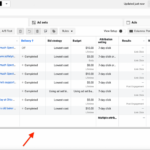Hard Money Lenders offer a unique and often crucial alternative to traditional mortgage financing, particularly in the dynamic world of real estate investment. These lenders provide short-term loans secured by real estate, catering to investors seeking quick access to capital for projects like fix-and-flips, property acquisitions, and land development.
A Home Equity Line Of Credit provides a revolving line of credit that you can access as needed, using your home’s equity as collateral.
While hard money loans can be a valuable tool for accelerating transactions and acquiring distressed properties, it’s essential to understand the intricacies of this lending landscape. This guide delves into the benefits and risks associated with hard money loans, providing a comprehensive overview of how they function and their potential impact on real estate investment strategies.
What are Hard Money Lenders?
Hard money lenders are private individuals or companies that provide short-term loans secured by real estate. These loans are typically used to finance real estate investment projects, such as fix-and-flip, rental property acquisition, or land development.
Fundamental Nature of Hard Money Lending
Hard money lending is a niche segment of the real estate finance market, characterized by its focus on speed, flexibility, and risk tolerance. Unlike traditional mortgage lenders, who primarily assess a borrower’s creditworthiness and income, hard money lenders prioritize the value of the underlying real estate asset.
They are more willing to lend to borrowers with less-than-perfect credit histories or limited income documentation, as long as the property offers sufficient collateral.
Types of Properties Financed by Hard Money Lenders
Hard money lenders typically finance a range of real estate projects, including:
- Fix-and-Flip Properties:These are properties that require significant renovation or repairs before they can be sold at a profit. Hard money loans provide the capital needed to acquire and renovate these properties, allowing investors to capitalize on market opportunities.
- Rental Properties:Hard money loans can be used to finance the purchase of rental properties, especially those that require rehabilitation or are located in distressed areas. This allows investors to acquire properties that might not be eligible for traditional financing.
- Land Development Projects:Hard money lenders can provide financing for land acquisition and development projects, including subdivisions, commercial construction, and residential developments. These loans typically have shorter terms, aligning with the timeline of development projects.
- Distressed Properties:Hard money lenders often finance the purchase of distressed properties, such as foreclosures, short sales, or properties with liens. These properties may require significant repairs or legal complexities, making them less attractive to traditional lenders.
Examples of Real Estate Projects Utilizing Hard Money Loans
Hard money loans are commonly used in various real estate projects, such as:
- Fix-and-Flip:An investor acquires a rundown property for a low price, secures a hard money loan to renovate it, and then resells it for a profit.
- Rental Property Acquisition:An investor purchases a multi-family property in a growing neighborhood, using a hard money loan to cover the down payment and renovation costs. The property is then rented out to generate income.
- Land Development:A developer acquires a large parcel of land, obtains a hard money loan to finance infrastructure development, and then subdivides the land for residential or commercial use.
Comparison of Hard Money Loans with Traditional Mortgage Loans
Hard money loans differ significantly from traditional mortgage loans in several key aspects:
| Feature | Hard Money Loan | Traditional Mortgage Loan |
|---|---|---|
| Loan Purpose | Real estate investment projects | Home purchase, refinance, or home equity |
| Loan Term | Short-term (6 months to 2 years) | Long-term (15-30 years) |
| Interest Rates | Higher | Lower |
| Loan-to-Value Ratio (LTV) | Lower (typically 65-75%) | Higher (typically 80-95%) |
| Credit Requirements | Less stringent | More stringent |
| Closing Time | Faster | Slower |
Benefits of Hard Money Loans
Hard money loans offer several advantages for borrowers, making them an attractive financing option for certain real estate investment strategies.
Advantages for Borrowers
The key benefits of hard money loans include:
- Speed and Flexibility:Hard money lenders are known for their quick turnaround times and flexible lending criteria. They can often close loans within a few weeks, compared to traditional mortgages that can take several months.
- Access to Financing for Distressed Properties:Hard money lenders are more willing to finance properties that traditional lenders might consider too risky, such as foreclosures or properties with liens. This provides investors with access to opportunities that might otherwise be unavailable.
- Higher Loan-to-Value Ratios:Hard money lenders often offer higher loan-to-value ratios (LTV) compared to traditional lenders, allowing borrowers to finance a larger portion of the purchase price. This can be particularly beneficial for investors who need to minimize their upfront investment.
Accelerating Real Estate Transactions
The speed and flexibility of hard money loans can significantly accelerate real estate transactions. Investors can quickly secure financing to close deals, allowing them to capitalize on time-sensitive opportunities.
From mortgages to personal loans, Loans can play a significant role in achieving your financial goals.
Flexibility and Speed

Hard money lenders offer borrowers greater flexibility in terms of loan terms and closing timelines. They can often tailor loans to meet the specific needs of each project, providing borrowers with greater control over their financing.
Benefits for Investors Seeking Distressed Properties
Hard money loans are particularly beneficial for investors seeking to acquire distressed properties. These properties often require significant repairs or legal complexities, making them less attractive to traditional lenders. Hard money lenders are more willing to finance these projects, providing investors with access to valuable opportunities.
Risks Associated with Hard Money Loans
While hard money loans offer several benefits, it’s crucial to be aware of the potential drawbacks and risks associated with this type of financing.
Potential Drawbacks and Risks, Hard Money Lenders
The main risks associated with hard money loans include:
- Higher Interest Rates:Hard money lenders typically charge higher interest rates than traditional mortgage lenders. This is because they are taking on greater risk by lending to borrowers with less-than-perfect credit or financing projects with higher risk profiles.
- Shorter Loan Terms:Hard money loans typically have shorter terms, ranging from 6 months to 2 years. This means borrowers have less time to repay the loan, which can increase the pressure to sell or refinance the property.
- Balloon Payments:Hard money loans often involve balloon payments, where a large lump sum is due at the end of the loan term. This can create financial strain for borrowers who are unable to repay the full amount.
Higher Interest Rates
Hard money lenders charge higher interest rates to compensate for the increased risk they take on. This can significantly impact the profitability of real estate investment projects, especially if the project takes longer than expected or faces unforeseen challenges.
Looking for a way to manage your debt with lower interest rates? Low Interest Personal Loans can be a good option for consolidating high-interest debt.
Shorter Loan Terms and Balloon Payments
The shorter loan terms and potential for balloon payments can create pressure on borrowers to sell or refinance the property before the loan matures. This can be challenging if the market conditions are unfavorable or if the borrower encounters difficulties in securing alternative financing.
Situations Where Hard Money Loans Might Not Be Suitable
Hard money loans may not be suitable for all real estate investment projects. They are generally not recommended for:
- Long-Term Investments:Hard money loans are not intended for long-term holding properties. The high interest rates and short loan terms can make them expensive for long-term investments.
- Borrowers with Strong Credit Histories:Borrowers with good credit histories and stable income may be better suited for traditional mortgage loans, which typically offer lower interest rates and longer terms.
- Projects with Uncertain Return on Investment:Hard money loans should only be used for projects with a clear and achievable return on investment. The higher interest rates and shorter terms can amplify losses if the project fails to meet expectations.
Finding and Evaluating Hard Money Lenders
Finding and evaluating the right hard money lender is crucial for the success of any real estate investment project.
Resources and Strategies for Locating Hard Money Lenders
Here are some resources and strategies for locating hard money lenders:
- Online Directories:Several online directories specialize in listing hard money lenders. These directories can help you find lenders in your area and compare their rates and terms.
- Real Estate Investor Networks:Networking with other real estate investors can be a valuable source of referrals for hard money lenders. Many investors have experience working with different lenders and can provide insights into their reputations and capabilities.
- Real Estate Professionals:Real estate agents, brokers, and attorneys often have relationships with hard money lenders. They can provide recommendations based on your specific project needs.
Evaluating the Reputation and Trustworthiness of Potential Lenders
Once you have identified potential hard money lenders, it’s important to evaluate their reputation and trustworthiness. Consider the following factors:
- Experience:How long has the lender been in business? Do they have a track record of successful real estate loans?
- Reputation:Check online reviews and testimonials to gauge the lender’s reputation among previous borrowers. Look for feedback on their responsiveness, communication, and overall experience.
- Financial Stability:Is the lender financially sound and able to provide the necessary funding for your project? Check their financial statements or seek references from other borrowers.
Key Factors to Consider When Comparing Hard Money Lenders
When comparing different hard money lenders, consider the following factors:
| Factor | Description |
|---|---|
| Interest Rates | The interest rate charged on the loan. Lower rates are generally more favorable. |
| Loan Terms | The length of the loan and the repayment schedule. Shorter terms may be advantageous for quick projects, but they also require faster repayment. |
| Fees | Fees associated with the loan, such as origination fees, closing costs, and prepayment penalties. |
| Loan-to-Value Ratio (LTV) | The percentage of the property’s value that the lender is willing to finance. Higher LTVs can reduce the upfront investment required. |
| Experience | The lender’s experience in financing real estate investment projects. Look for lenders with a proven track record in your specific area of interest. |
| Reputation | The lender’s reputation among borrowers and industry professionals. Check online reviews and testimonials to gauge their trustworthiness and reliability. |
Hard Money Loans in Real Estate Investment Strategies
Hard money loans can be a valuable tool for real estate investors, providing access to capital for various investment strategies.
If you’re considering using your home’s equity for financing, it’s important to understand Home Equity Loan Rates and compare them to other loan options.
Case Study: Financing a Fix-and-Flip Project
Consider a real estate investor who wants to acquire a distressed property for $100,000 and renovate it for $50,000. The investor plans to sell the property for $200,000 after renovations are complete.
- The investor needs $150,000 to purchase and renovate the property. They could secure a hard money loan with a 70% LTV, meaning the lender would finance $105,000 of the project.
- The investor would need to provide a $45,000 down payment, which could be sourced from their own funds or other investments.
- The hard money loan would have a 12-month term with a 10% interest rate. This means the investor would pay $875 per month in interest and principal payments.
- After renovations are complete, the investor would list the property for $200,000. If they successfully sell the property at this price, they would have a profit of $45,000 after repaying the hard money loan and accounting for other expenses.
Real Estate Investors Who Have Leveraged Hard Money Loans Successfully
Many real estate investors have successfully leveraged hard money loans for their projects. For example, a renowned real estate investor in the United States, known for their expertise in fix-and-flip projects, often uses hard money loans to acquire distressed properties and finance renovations.
A Home Loan is a type of loan specifically designed for purchasing a property. These loans often have longer terms and lower interest rates than other types of loans.
Their success demonstrates the potential of hard money loans in accelerating investment projects and maximizing returns.
A Home Equity Loan allows you to borrow against your home’s equity, receiving a lump sum of cash that you can use for various purposes.
Integration into Real Estate Investment Strategies
Hard money loans can be integrated into various real estate investment strategies, including:
- Fix-and-Flip:Hard money loans are commonly used to finance the acquisition and renovation of fix-and-flip properties. They provide the necessary capital to acquire properties, complete renovations, and prepare them for sale.
- Rental Property Acquisition:Hard money loans can be used to finance the purchase of rental properties, especially those requiring rehabilitation or located in distressed areas. They offer a quicker and more flexible alternative to traditional mortgage loans.
- Land Development:Hard money loans can provide financing for land acquisition and development projects, such as subdivisions, commercial construction, and residential developments. Their short-term nature aligns well with the timeline of development projects.
- Commercial Real Estate Investment:Hard money loans can be used to finance commercial real estate investments, such as the acquisition of retail properties, office buildings, or industrial facilities. They can be a valuable option for investors who need to move quickly on commercial deals.
Hard Money Lending Regulations and Laws
Hard money lending is subject to various legal and regulatory frameworks, ensuring fair lending practices and protecting borrowers.
Stay up-to-date on current rates by checking Current Mortgage Rates to see how they compare to historical trends.
Legal and Regulatory Frameworks Governing Hard Money Lending
The legal and regulatory frameworks governing hard money lending vary by jurisdiction. In the United States, for instance, both state and federal laws regulate hard money lending practices.
A Secured Loan uses an asset as collateral, which can often lead to lower interest rates.
- State Laws:Each state has its own set of laws governing lending activities, including interest rate caps, licensing requirements, and consumer protection regulations. These laws can impact the terms and conditions of hard money loans offered in different states.
- Federal Laws:Federal laws, such as the Truth in Lending Act (TILA) and the Real Estate Settlement Procedures Act (RESPA), apply to all mortgage loans, including hard money loans. These laws require lenders to disclose specific information to borrowers, such as the loan’s interest rate, fees, and repayment terms.
Looking to buy a home? A Mortgage is often a crucial part of the process, allowing you to finance the purchase over time.
Role of State and Federal Laws in Regulating Hard Money Lending Practices
State and federal laws play a crucial role in regulating hard money lending practices, ensuring transparency, fairness, and consumer protection. These laws help prevent predatory lending practices, protect borrowers from unfair or deceptive loan terms, and ensure that lenders operate within legal and ethical boundaries.
If you’re carrying high-interest debt, a Debt Consolidation Loan can help simplify your finances and potentially lower your monthly payments.
Implications of Non-Compliance with Lending Regulations
Hard money lenders who fail to comply with applicable lending regulations can face severe consequences. These consequences can include:
- Fines and Penalties:Lenders who violate lending laws can be subject to fines and penalties, which can significantly impact their business operations.
- License Revocation:State authorities can revoke the licenses of lenders who repeatedly violate lending regulations. This can effectively shut down their business operations.
- Legal Action:Borrowers who are harmed by non-compliant lending practices can take legal action against the lender, seeking compensation for damages.
Hard Money Lending in the Future
The hard money lending market is constantly evolving, driven by changes in economic conditions, real estate market dynamics, and technological advancements.
A Mortgage Loan is a secured loan that uses your home as collateral, allowing you to finance the purchase of a property.
Potential Trends and Developments
Several trends and developments are likely to shape the future of hard money lending:
- Increased Competition:The hard money lending market is becoming increasingly competitive, with more lenders entering the space. This could lead to lower interest rates and more flexible loan terms for borrowers.
- Technological Advancements:Technological advancements, such as online lending platforms and automated underwriting systems, are streamlining the hard money lending process, making it faster and more efficient.
- Evolving Economic Conditions:Economic conditions, such as interest rate fluctuations and changes in real estate market cycles, can significantly impact the hard money lending market. For example, rising interest rates could make hard money loans less attractive to borrowers.
Impact of Evolving Economic Conditions and Real Estate Market Dynamics
Evolving economic conditions and real estate market dynamics can have a significant impact on hard money lending. For example, a booming real estate market can lead to increased demand for hard money loans, while a downturn in the market could reduce demand and make lenders more cautious.
For veterans, VA Loan Rates can offer competitive financing options with no down payment required.
Potential Innovations and Changes in Hard Money Lending Practices
Potential innovations and changes in hard money lending practices include:
- Alternative Lending Models:The emergence of alternative lending models, such as peer-to-peer lending and crowdfunding, could provide borrowers with new sources of financing for real estate projects.
- Data-Driven Underwriting:Hard money lenders are increasingly using data-driven underwriting models to assess risk and make more informed lending decisions. This could lead to more accurate risk assessments and potentially lower interest rates for borrowers.
- Increased Transparency:The hard money lending industry is becoming more transparent, with lenders providing more information about their rates, fees, and loan terms. This increased transparency can help borrowers make more informed decisions.
Last Word
Navigating the world of hard money lending requires a careful balance of understanding the benefits, risks, and legal complexities involved. By thoroughly researching and evaluating potential lenders, investors can leverage the speed and flexibility of hard money loans while mitigating potential pitfalls.
Ultimately, a well-informed approach empowers investors to make informed decisions and maximize their success in the dynamic real estate market.
Choosing the right lender is crucial for a smooth mortgage process. You can explore Best Mortgage Lenders to find one that fits your needs.
Expert Answers
What is the typical loan-to-value ratio for hard money loans?
Loan-to-value (LTV) ratios for hard money loans typically range from 65% to 80%, depending on the lender and the property’s condition. This means that you’ll need a significant down payment to secure a hard money loan.
If you have equity in your home, a Heloc can be a valuable tool for accessing funds for home improvements, debt consolidation, or other financial needs.
Are hard money loans available for all types of real estate projects?
Hard money lenders often specialize in specific types of real estate projects, such as fix-and-flips or commercial properties. It’s important to find a lender that aligns with your investment goals and the type of property you’re seeking to finance.
How do I find reputable hard money lenders?
Start by networking with other real estate investors, attending industry events, and researching online directories that specialize in hard money lending. You can also seek referrals from trusted professionals like real estate agents or attorneys.
What are the typical fees associated with hard money loans?
Hard money loans often involve origination fees, closing costs, and potentially other fees. It’s essential to carefully review the loan agreement to understand all associated fees and their impact on the overall cost of borrowing.
Curious about current interest rates? You can check out Personal Loan Rates to get an idea of what you might qualify for.














